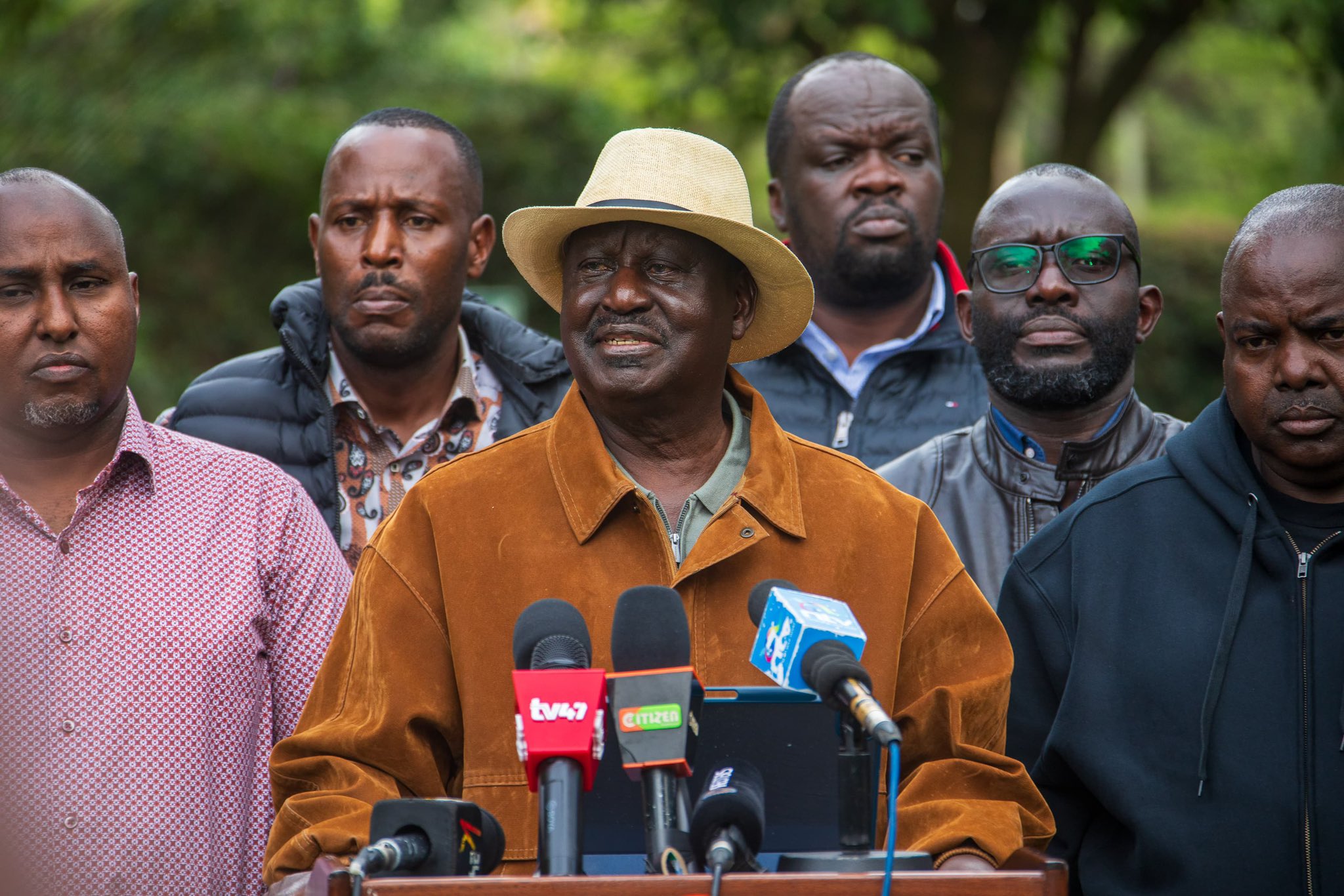
National conclave key to solving Kenya’s challenges – Raila
Former Prime Minister Raila Odinga has urged Kenyans to embrace conversation over confrontation in order to resolve the country’s deepening social and political crises.
Speaking about his proposal for a national dialogue process dubbed the Intergenerational National Conclave, the leader of the Orange Democratic Movement reiterated that dialogue is the only viable path to prevent chaos and ensure progress, particularly amidst growing unrest among the youth and widening intergenerational divides.
“I’m happy that the Kenyans are now discussing this issue. That’s what it is to me. And you can have suggestions,” he said during an interview with NTV
“I never run out of dialogue ideas because people must talk. When there’s a crisis, people must find a solution. If you don’t, you get anarchy,” added Odinga, warning against the dangers of political stalemate and social tension.
He revealed that the idea of a national conversation was originally his and noted that although President William Ruto’s attempt to convene a forum was dismissed by protesting Gen Zs, the need for an inclusive platform remains critical.
Raila believes that a bottom-up approach to dialogue, starting at the community level, is the most effective. He stated that citizens, alongside their leaders, would identify issues and elect gender-balanced and youth-inclusive delegates at every level – from grassroots to counties – culminating in a national gathering of representatives (the national conclave) drawn from all sectors.
“This is a people’s process. Communities can organize and elect their representatives. Then at the national level, MPs, civil society, religious leaders, workers and intellectuals join the table,” he said.
Odinga acknowledged that at the height of Gen Z-led protests, the nation teetered on the brink of anarchy. He recounted a call from former President Uhuru Kenyatta, who urged him to consider dialogue with President Ruto “in the interest of the country.”
“The country was in a state of crisis, with a stalemate, as it were. The streets had become almost inaccessible. It was a stalemate, which can actually create a state of anarchy. That is not what we thought was an option, and that’s really why this decision was taken at that time, to get a government at least moving forward, which somebody can negotiate with,” he explained.
He acknowledged that his proposal for dialogue has sparked national debate but expressed satisfaction that Kenyans are freely sharing their views on the matter. He also expressed optimism that he could persuade a significant number to accept his perspective on the country’s situation.
“I’m not worried about those who do not understand what I’m trying to do. I always try to convince them to see the things the way I see them,” he said
Odinga also assured the public that compensation for victims of recent protests is underway, with a taskforce already in place and contingency funds available.
“On compensations, it’s going to happen. Just hold your horses. A taskforce will deal with it,” he said.
The former Premier stated that he stepped back from street protests at the request of Kenya’s youth.
“The youth said they were out to finish the job and asked me to stay home. I respected their wishes,” he affirmed, reiterating his belief in intergenerational dialogue over generational discord.
